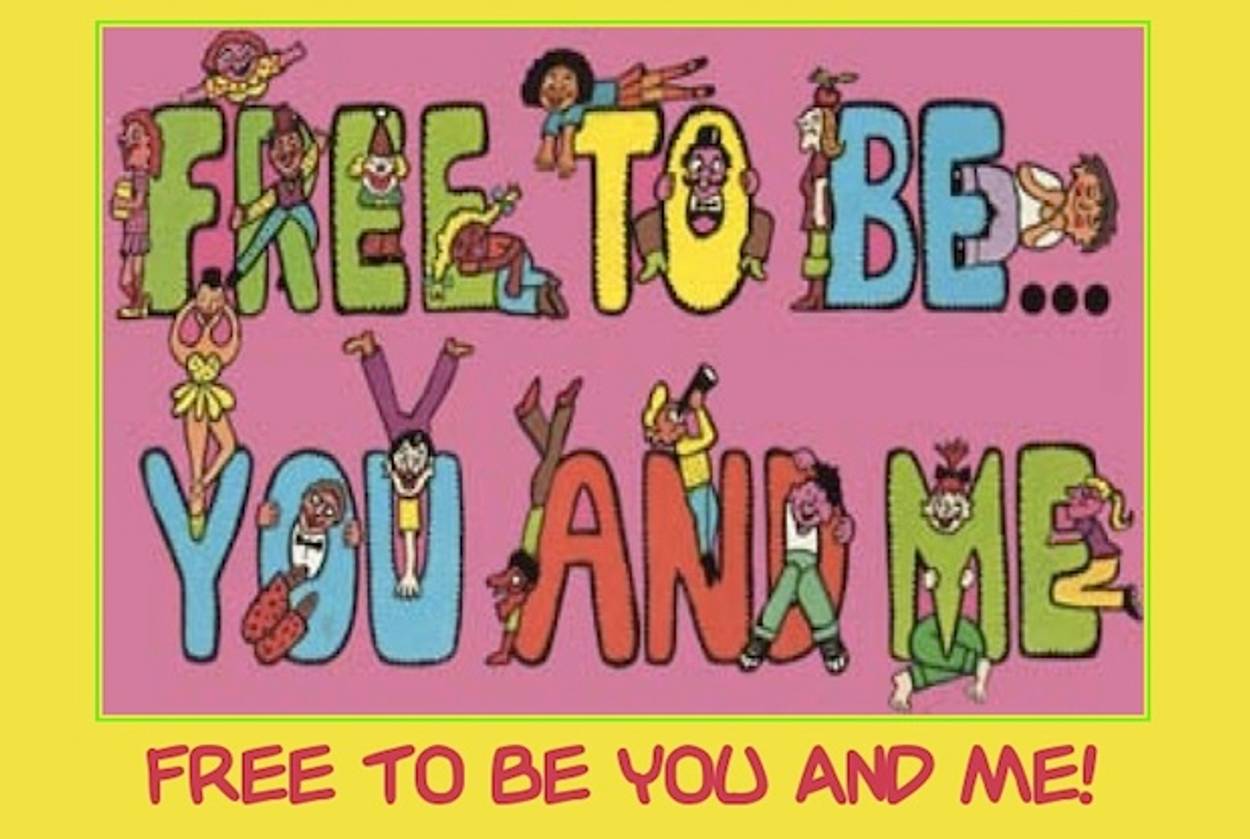‘Free To Be You and Me’ Turns 40
The project had feminist underpinnings, a message, and Jewish support




There seem to be two groups who know about the album and later the book, play, television special Free To Be…You and Me, a feel-good, clarion call for social acceptance that debuted in 1972. The first group consists of people who were culturally aware at the time of its release 40 years ago–from the teachers and parents who used the material to teach its lessons to the networks and labels that promoted it and the people who watched and listened.
While that implies a pretty broad swath of the population, Free To Be seems to have been a time and place thing (a thing may very well be the best way to describe it) in that it made instructive sense of all that had happened in the previous decade. As Dan Kois writes:
From the album’s opening sounds—the jaunty strumming of a banjo on the title track—Free To Be posited a world in which every boy “grows to be his own man,” and “every girl grows to be her own woman.” The land of Free To Be was a place where girls could grow up to be mommies and doctors, and they didn’t have to get married if they didn’t want to. It was a place where boys could cry or play with dolls without fear of scorn. It was a place where boys and girls could be friends, no matter what they looked like or acted like—unless the girl was a prissy princess, in which case she would be eaten by a tiger.
I was part of a second group, the Jewish summer camp set for whom the album’s music and scenes were force-fed, sang, and reenacted well over a decade after its release. After all, the album (which was the brainchild of Marlo Thomas), featured contributions from musicians, artists, and activists like Mel Brooks, Gloria Steinem, David Greenburg, Dick Cavett, Carl Reiner, Alan Alda, and Diana Ross. What a line-up!
But at a certain point, I never heard it again. And I forgot that I had ever seen it. Possibly because I was still too young, the mention of Free To Be now coaxes out a late-childhood memory, something lodged deep in the recesses, but that cannot be entirely unearthed. Having featured news of the album’s 40th anniversary in our Daybreak section last week, I received a very nice synthesis of the meaning of the Free to Be in the context of today’s news from one of our readers.
After suffering through the last debate and reading some of the follow-up and being made aware that it is the 40th anniversary of “Free To Be You And Me,” I reflected on how far we have come and how little progress we have made.
The 70s were a great time to be a woman as well as a very bad time – we had just had the Roe v. Wade ruling and it seemed we were finally really given control over our own bodies. We did not realize that 40 years later we would be fighting the same battle over and over again. In those days, we had to argue that contraception was not the answer to eliminating the need for abortion; we never thought we would have to fight for the ability to select contraception. We had every hope that the Equal Rights Amendment would become the law of the land – we knew, even if our opponents did not that equal does not mean same – it means having the same worth, having the same value. We truly believed that the glass ceiling would disappear because the world would realize that gender was not the measure of intellect or skill. All of this was reflected in the album and the book. We really believed that we could raise all of our children with expectations that their only limits would be on their own abilities, their own dreams, their own aspirations. Hearing the rhetoric of this political campaign is painful, maybe we should all start singing again; maybe someone will listen to us.
Now I remember a little better.
Free To Be [Slate]
Adam Chandler was previously a staff writer at Tablet. His work has appeared in the New York Times, the Wall Street Journal, the Atlantic, Slate, Esquire, New York, and elsewhere. He tweets @allmychandler.